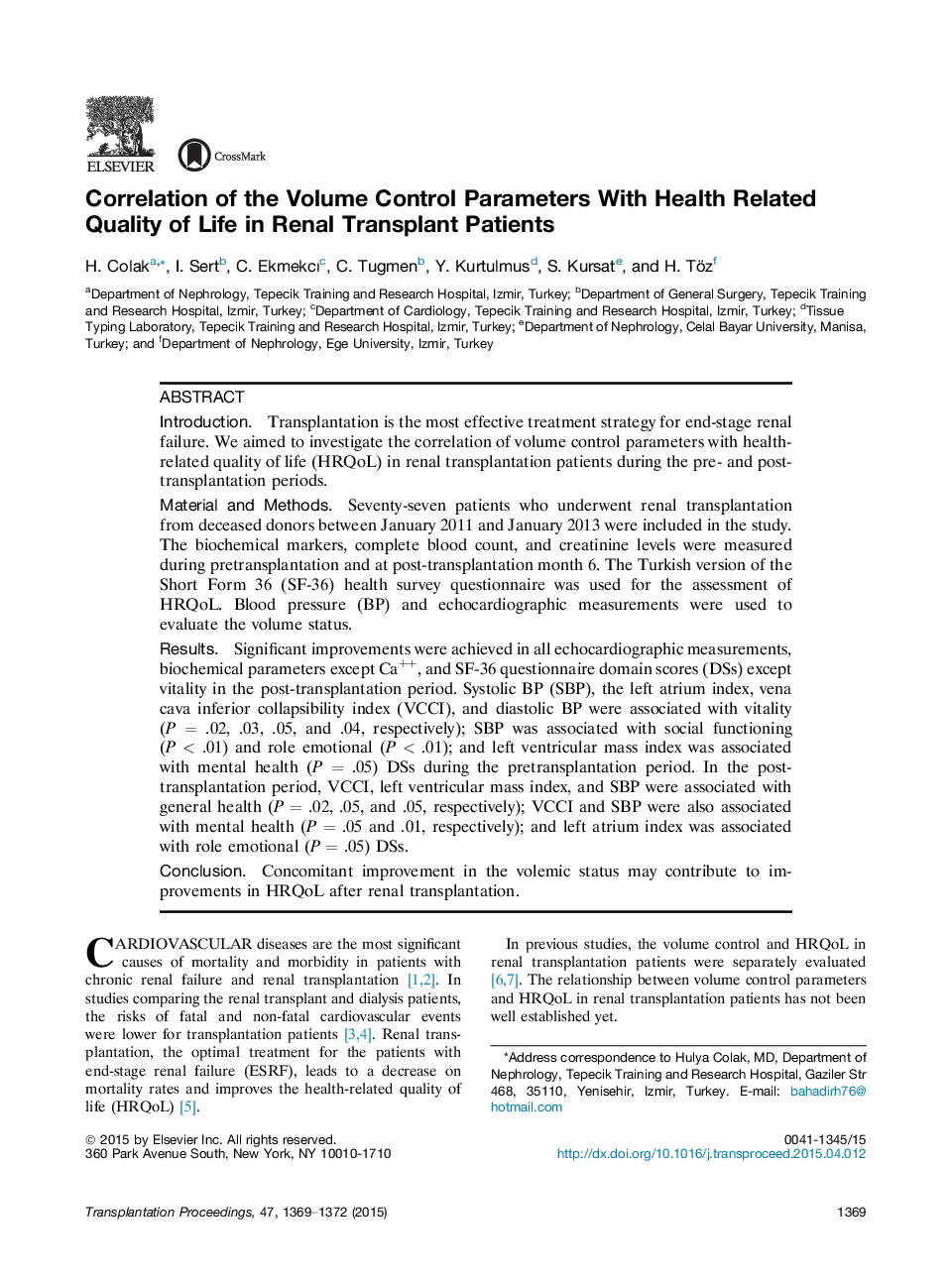| Article ID | Journal | Published Year | Pages | File Type |
|---|---|---|---|---|
| 4257382 | Transplantation Proceedings | 2015 | 4 Pages |
IntroductionTransplantation is the most effective treatment strategy for end-stage renal failure. We aimed to investigate the correlation of volume control parameters with health-related quality of life (HRQoL) in renal transplantation patients during the pre- and post-transplantation periods.Material and MethodsSeventy-seven patients who underwent renal transplantation from deceased donors between January 2011 and January 2013 were included in the study. The biochemical markers, complete blood count, and creatinine levels were measured during pretransplantation and at post-transplantation month 6. The Turkish version of the Short Form 36 (SF-36) health survey questionnaire was used for the assessment of HRQoL. Blood pressure (BP) and echocardiographic measurements were used to evaluate the volume status.ResultsSignificant improvements were achieved in all echocardiographic measurements, biochemical parameters except Ca++, and SF-36 questionnaire domain scores (DSs) except vitality in the post-transplantation period. Systolic BP (SBP), the left atrium index, vena cava inferior collapsibility index (VCCI), and diastolic BP were associated with vitality (P = .02, .03, .05, and .04, respectively); SBP was associated with social functioning (P < .01) and role emotional (P < .01); and left ventricular mass index was associated with mental health (P = .05) DSs during the pretransplantation period. In the post-transplantation period, VCCI, left ventricular mass index, and SBP were associated with general health (P = .02, .05, and .05, respectively); VCCI and SBP were also associated with mental health (P = .05 and .01, respectively); and left atrium index was associated with role emotional (P = .05) DSs.ConclusionConcomitant improvement in the volemic status may contribute to improvements in HRQoL after renal transplantation.
